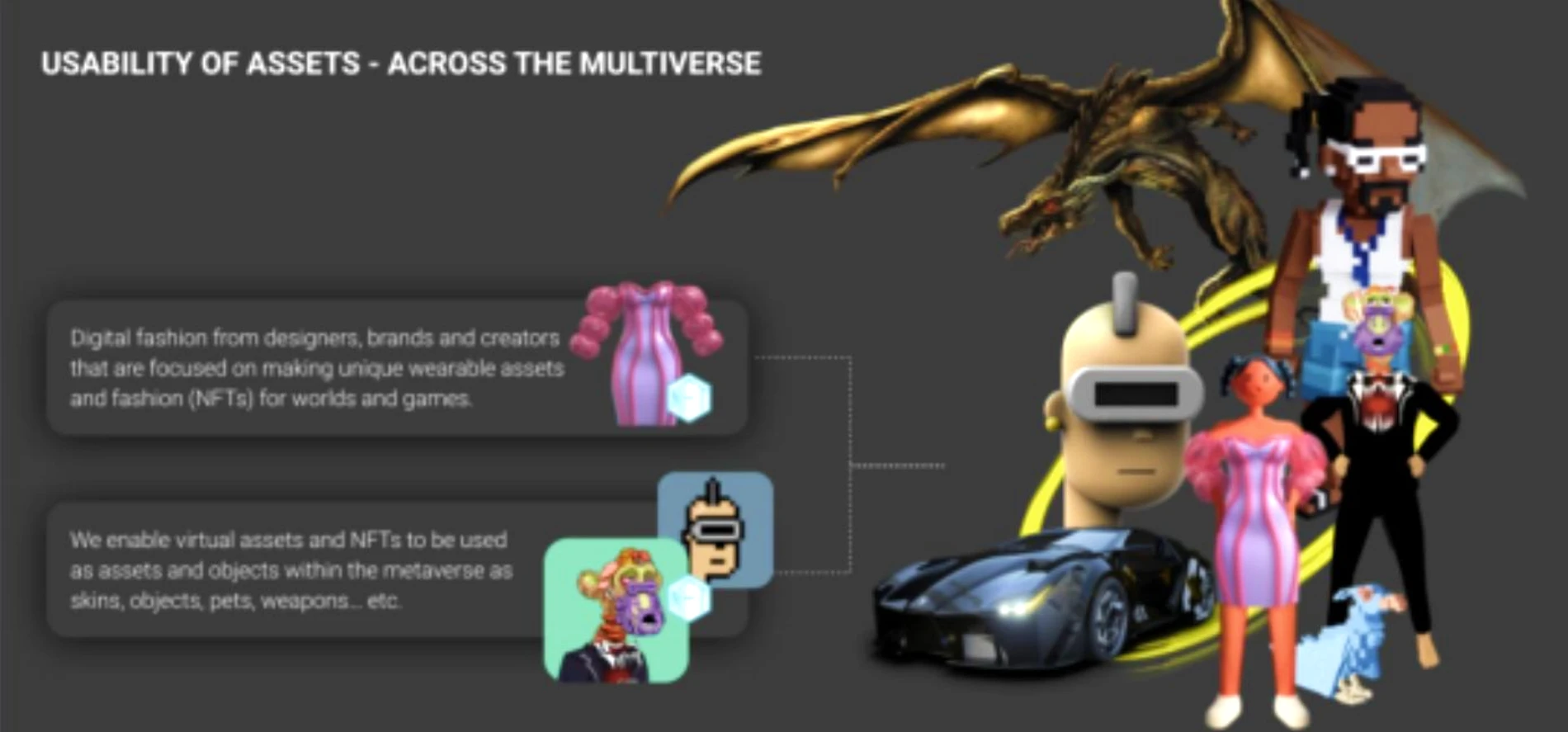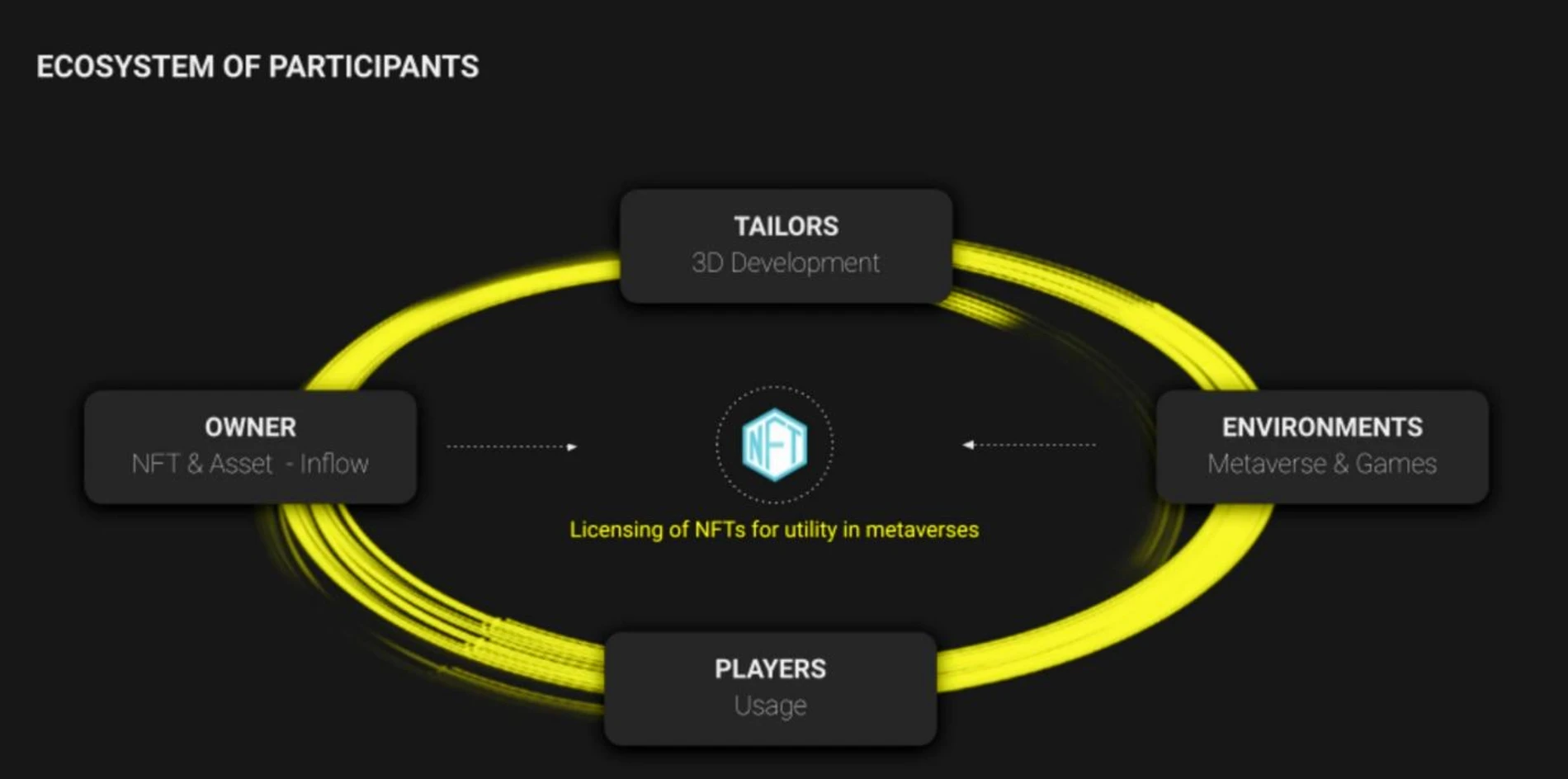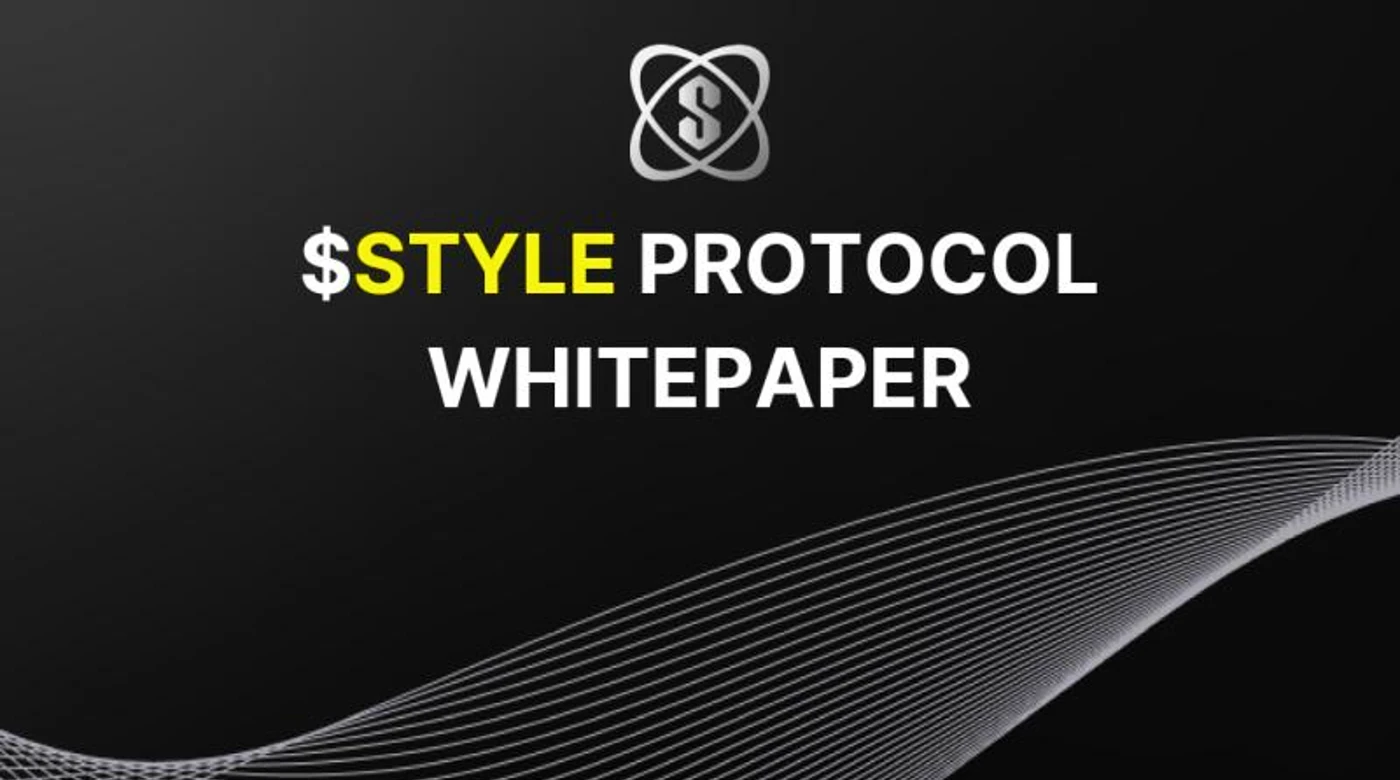STYLE Protocol has launched their whitepaper which outlines their vision, values, who they are, their token launch, the different participants of their ecosystem and how they will solve the existing challenges and problems with the NFT industry.
STYLE Protocol’s vision is to become the go-to multiverse-backbone that helps maximize the utility and value of smart Digital Assets and Virtual Goods.
Online environments are growing. The number of active players and people with identities in virtual worlds is increasing steadily. The growth of decentralized and crypto-powered metaverses has unleashed a wave of open worlds.
The availability of devices enabling hybrid experiences will further accelerate the use cases and therefore the adoption among the population. Lastly, the gaming industry is growing rapidly and the number of active players amongst the globe is increasing drastically.
It is reasonable to assume that a fraction of “classic” gaming will evolve in the direction of decentralized participation models for their players and tokenized systems.
Existing metaverses are marketed as open and accessible, yet different underlying technology stacks, blockchains, and 3D virtual engines prohibit the compatibility of these worlds.

STYLE Protocol aims to solve the underlying interoperability problem and connects worlds beyond their virtual borders to allow full usability for users.
The NFT technology is praised as the future of virtual identification and functions as a pillar technology for verifying assets. But some challenges remain:
- NFTs are not automatically compatible with any environment
- NFTs are missing Metaverse and web3 usability, as they have no automated 3D counterparts
- NFTs can not be utilized for continuous monetization concerning virtual worlds
Besides, only a few virtual worlds (games) utilize NFT technology to verify the individual ownership of Digital Assets or “virtual goods”. There is a deep fracture between game assets, metaverse assets, and purely 2D published NFT-Collections, here is why:
- NFTs and Assets are not automatically utilizable and interoperable.
- Assets are not immediately 3D compatible.
- Virtual Assets and NFTs have limitations with how they can be monetized.
- Foreign usage of virtual assets has no time-stamp option
- Example: A Crypto Punk, BAYC or Neo Tokyo Citizen can be turned into a multiverse skin that can now be rented by individuals to wear in the game, metaverse or virtual world of their choice.
STYLE Protocol sees itself as the solution for all of these problems. They can be overcome with a decentralized 3D virtual asset utilization and sub licensing protocol, which by definition is what the STYLE Protocol ecosystem is
The main principles of the protocol are:
- NFTs can be staked on the open protocol to unlock advanced usability across the multiverse.
- Assets can be brought into circulation and used across the multiverse.
- Assets can be monetized with usability and sublicensing across multiple virtual worlds.
- A Decentralized Autonomous Organization (DAO) governs and regulates the supply chain and the protocol’s principles.
- The protocol’s advantages are freely available for anyone to use and to participate in the ecosystem – Creators, Owners, Tailors, Metaverses, Games….
The protocol primarily aims to make Digital Assets available with advanced usability in an array of different environments, including games, virtual worlds and metaverses. To enable this, a new technical utility to the assets is introduced, which can best be described as sublicensing/derivatives.
Each world, game or metaverse that connects to the STYLE Protocol has different engineering principles and systems. They may run on different blockchains, have different play logics or run on different 3D engines.
To overcome these difficulties, the STYLE Protocol draws derivatives or sublicenses of assets and NFTs to have these applicable versions compatible with different environments on a blockchain and 3D virtualization level. Anyone looking to bring this utility to their assets can connect to the STYLE Protocol.
This means that the sublicensed versions and derivatives of the initially staked NFT are applicable and usable with different blockchains and thus the correlating games. Also – and this is the major point – they are turned into functional assets inside the metaverse or game and can additionally be rented out as such to other players in these virtual worlds.

The NFT or virtual asset becomes available in each world through three key pillars / participants of the ecosystem. The three pillars of the ecosystem are:
- Owners = NFT owners staking the NFTs for interoperability or anyone bringingDigital Assets (such as 3D files) onto the STYLE Protocol. Anyone, from the initial NFT creator or “non-chain” 3D asset owner, such as a brand or designer to a holder with an NFT in their wallet can offer this asset for bridging to the multiverse on STYLE Protocol.
- Tailors = Anyone interested in earning $STYLE tokens by molding and adjusting 3D assets within the protocol to adjust the versions to different games and metaverses. Tailors can also directly upload 3D files and creations into the supply chain and act as creators for assets.
- Environments = Connected platforms, metaverses and games offering the finalized assets and creations for sale within their environments. The customers and players within these ecosystems will be able to utilize all assets from the STYLE Protocol supply chain as avatars, skins, fashion, objects etc…
The participants mentioned above work together to make the ecosystem work harmoniously. However, they have created their own token $STYLE to incentivize different participants in the ecosystem and allow for continuous supply chain flow on a completely decentralized
network.
The $STYLE token is designed to be the backbone of the participants and value flow within the ecosystem. The primary beneficiaries of the token are people staking it and holding it in close participation to the protocol’s activity. Additionally, the $STYLE token allows for participation in DAO votings on the future development of the protocol.
The token will be launched publicly with LBPs (Liquidity Bootstrapping Pools). The date of the public launch will depend on market and project readiness. The distribution will be asorganic as possible through the LBPs once activated for the community. Anyone can open pools and stake their token in exchange for the first 12% of the total token supply of $STYLE.
The ecosystem is structured as a DAO and anyone can join the future decentralized autonomous organization (DAO) of the STYLE Protocol. There are however different levels of engagement. Three layers of participants exist.
- Tier 1 – Executive Board Decision makers on a higher level for strategic development of the protocol. People must be voted into the executive board.
- Tier 2 – Supreme $STYLE Holders Anyone staking a minimum amount of token can join the secondary decision making tier in order to vote on changes and future development of the protocol.
- Tier 3 – Every $STYLE holder or people wanting to vote on future collaborations and next projects can do so after verifying to be an active token holder.
Once the protocol flows are set up and the ecosystem is live for users and environments, a DAO decision-making webfront will be launched for token holders and elected decision makers to connect wallets and participate in the decision-making of the protocol development.
Therefore, if one holds $STYLE token they will be able to vote in the creative, organizational and administrative processes of STYLE Protocol.
Finally, most NFTs and metaverse projects share part of their revenues with the community of NFT holders. These usually come from secondary market sales and royalty fees. As the NFT market grows, developers, artists, and collectors are exploring new use cases for their NFT collections. One of the latest cases is using NFTs as utility tokens in staking platforms.
For example, in some gaming metaverses, NFT collectors can stake their NFTs to boost their game character’s abilities and earn extra rewards.
NFT staking refers to the locking up of NFTs on a platform or protocol to receive staking rewards and other privileges. This allows NFT holders to earn a passive income while maintaining ownership of their NFTs.
Locking up NFTs on a platform can release rewards depending on the annual interest rate, the staking duration, and the number of NFTs staked.
$STYLE NFTs staking is a new opportunity for NFTs owners to monetize their assets, potentially attracting more people to participate and driving up the market demand for stakeable NFTs.
Staking an NFT on STYLE is like staking Bitcoin (BTC) or Ether (ETH). All that is needed is a cryptocurrency wallet with NFTs. The main purpose of staking NFTs on STYLE is to allow tailors to create derivative NFTs on another metaverse such as Bored Apes T-Shirt on Decentraland coming from original Bored Ape staked on STYLE.
These newly created NFTs that are utilizable across other virtual worlds are essentially derivative NFTs of the initial asset.
STYLE Protocol aims to empower the creator economy and young up-and-coming designers by adding utility, monetization opportunities and interoperability to their artwork. To build use cases for communities to utilize assets across different platforms and to provide access to exclusive virtual wearables for brands and designers.
Finally, they aim to turn existing NFTs into skins, avatars or wearables for different games and metaverses, acting as a decentralized metaverse exchange.
You can read the Whitepaper here.



